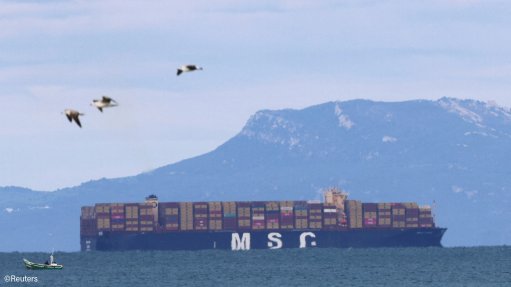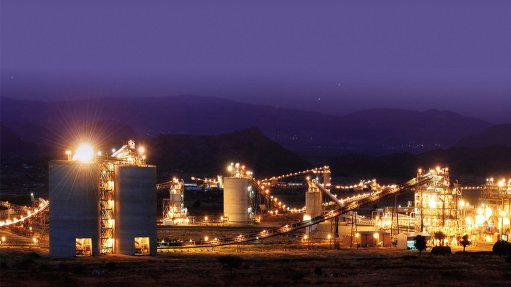Just energy transition good for South Africa but coal sector has to be involved
A Just Energy Transition (JET) was in the interests of South Africa, the World Bank has concluded. So reported World Bank senior energy economist Mariano Salto in a panel discussion at the Southern African Coal Conference, in Cape Town, on Friday.
Renewable energy was the least-cost energy option for the country. But as wind and solar power were variable, other technologies were needed to cover this variability. South Africa had these technologies. Further, these options when implemented on scale would reduce the demand, and so strain, on Eskom’s power stations, allowing the utility to undertake long-postponed maintenance. Moreover, having a large number of small power stations would reduce generation risk; should a large Eskom power station suffer a failure, the result was loadshedding, but should a solar array at a renewable power station fail, no one would notice.
Phasing out coal power would also reduce the country’s emissions of pollutants.
However, although the just transition would benefit South Africa, it would not be “a walk in the park,” he warned. Phasing out coal would have an impact on the communities around coal power stations and coal mines, and that would have to be mitigated.
University of Cape Town Chemical Engineering Department Energy Systems Research Group senior researcher Jesse Burton highlighted that point in her presentation: the just transition was not just the JET. It was about the impact on people.
She pointed out that South Africa was an outlier with regard to its dependence on coal. It was the most coal-dependent country in the Group of 20 major economies, being, for example, more dependent on coal than China or India.
The north-eastern province of Mpumalanga was responsible for 90% of the country’s coal mining output and 70% of South Africa’s coal-generated electricity. Coal mining in the province had been accompanied by many problems, included improperly closed old mines, land degradation, waste piles, dust, and acid mine drainage. The impending decline in coal mining in Mpumalanga was not just about climate change; many mines were going to become exhausted in the coming years. Between now and 2030 anything between 3 000 and 9 000 jobs would be lost in the province’s coal mining sector. It was unlikely that younger workers would find jobs at Mpumalanga coal mines.
Yet the JET involved achieving a “quality life” for all South Africans. Risks and opportunities had to be shared fairly. Social inclusion was necessary, as were social protection, human skills development, and environmental rehabilitation, among other required policy interventions.
In the case of coal mining, she highlighted, the socioeconomic impacts of mine closures would have to be monitored. Coal mining areas, and coal power plants, would have to be repurposed. Local economies within Mpumalanga would have to be diversified and workers would have to be reskilled. Already, the province had very high youth unemployment, especially among women. And many Mpumalanga communities were still underserved with regard to energy and water.
Mining companies were, she pointed out, investing in green energy and in decommissioning mines. “These are all potential contributions to the just transition,” she affirmed. But they needed significant upscaling. To ensure a just transition, mine closures had to be sustainable, involving the inclusion of the local communities and the repurposing of work forces, among other actions.
The country still needed coal miners to reliably and affordably provide Eskom with coal. No-one, she stressed, expected the country to stop using coal in the short term. “We cannot have a just transition without the coal mining sector being involved.”
Article Enquiry
Email Article
Save Article
Feedback
To advertise email advertising@creamermedia.co.za or click here
Press Office
Announcements
What's On
Subscribe to improve your user experience...
Option 1 (equivalent of R125 a month):
Receive a weekly copy of Creamer Media's Engineering News & Mining Weekly magazine
(print copy for those in South Africa and e-magazine for those outside of South Africa)
Receive daily email newsletters
Access to full search results
Access archive of magazine back copies
Access to Projects in Progress
Access to ONE Research Report of your choice in PDF format
Option 2 (equivalent of R375 a month):
All benefits from Option 1
PLUS
Access to Creamer Media's Research Channel Africa for ALL Research Reports, in PDF format, on various industrial and mining sectors
including Electricity; Water; Energy Transition; Hydrogen; Roads, Rail and Ports; Coal; Gold; Platinum; Battery Metals; etc.
Already a subscriber?
Forgotten your password?
Receive weekly copy of Creamer Media's Engineering News & Mining Weekly magazine (print copy for those in South Africa and e-magazine for those outside of South Africa)
➕
Recieve daily email newsletters
➕
Access to full search results
➕
Access archive of magazine back copies
➕
Access to Projects in Progress
➕
Access to ONE Research Report of your choice in PDF format
RESEARCH CHANNEL AFRICA
R4500 (equivalent of R375 a month)
SUBSCRIBEAll benefits from Option 1
➕
Access to Creamer Media's Research Channel Africa for ALL Research Reports on various industrial and mining sectors, in PDF format, including on:
Electricity
➕
Water
➕
Energy Transition
➕
Hydrogen
➕
Roads, Rail and Ports
➕
Coal
➕
Gold
➕
Platinum
➕
Battery Metals
➕
etc.
Receive all benefits from Option 1 or Option 2 delivered to numerous people at your company
➕
Multiple User names and Passwords for simultaneous log-ins
➕
Intranet integration access to all in your organisation

















